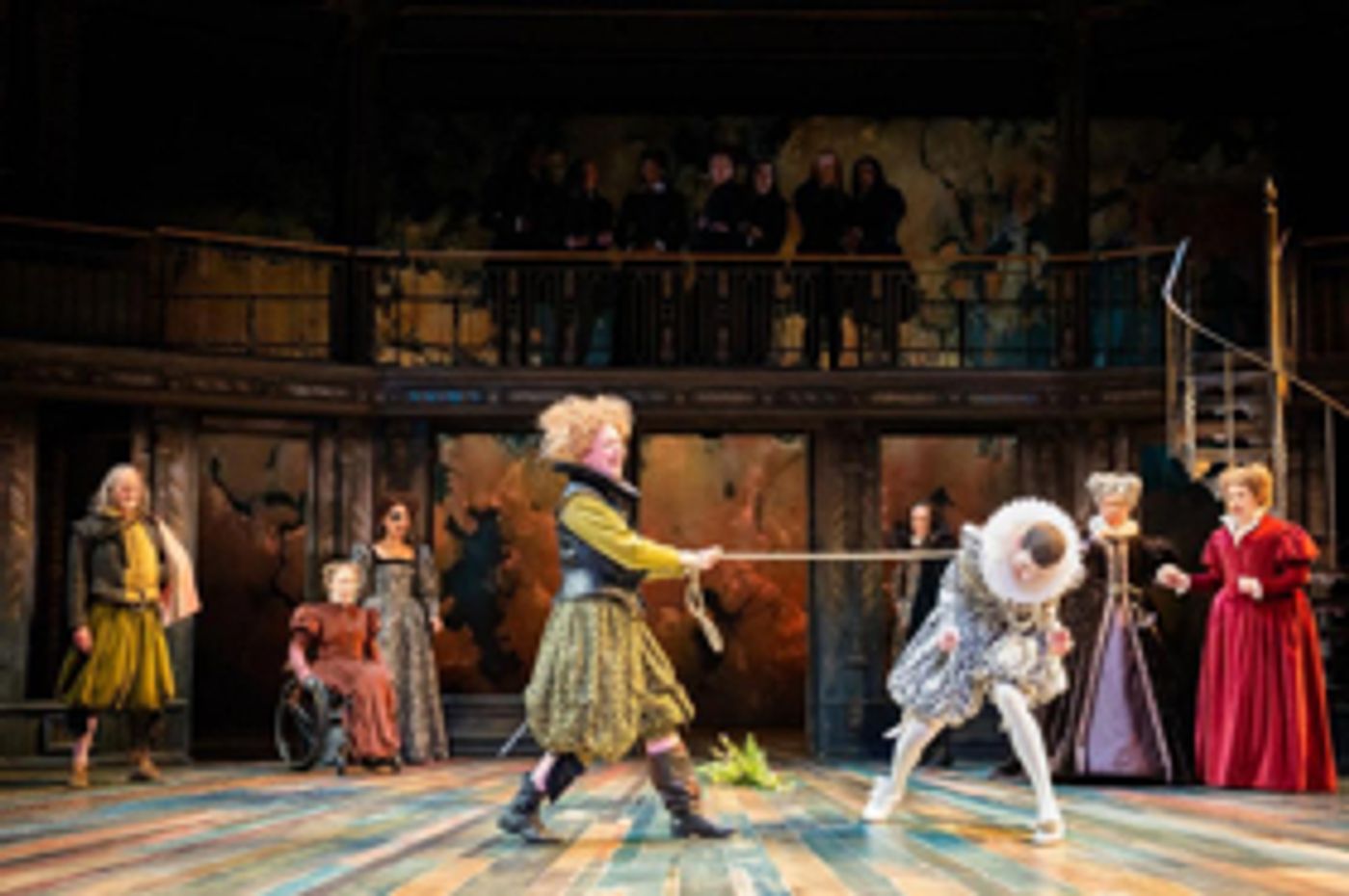Review: THE TAMING OF THE SHREW, Royal Shakespeare Theatre

![]() Or Taking the Rough with the Ruff?
Or Taking the Rough with the Ruff?
Even a lame pun like that feels in poor taste when one contemplates The Taming of the Shrew, Shakespeare's comedy about... well, men and women, power and money, duty and free will - take your pick.
Bianco, looking like he has stepped out of Lisa Simpson's favourite magazine, is pursued by suitors, much to the approval of his mother, the matriarch Baptista. But she is concerned more by her yobbish elder son, Katherine, a man who is given a wide berth by any self-respecting woman, his manners intolerable. Until Petruchia turns up, feisty and forthright - and keen on the dowry that will come with Katherine and the fun she will have in "taming the shrew".
While Katherine gets treatment we can calibrate somewhere on the spectrum between the tough love dispensed by 80s dog trainer Barbara Woodhouse and the treatment meted out to the victims at Abu Ghraib, identities are swapped as servants become masters and merchants become mothers in pursuit of the hand of Bianco. What japes!
For those familiar with the play, looming, like a bad smell that won't go away, is the infamous speech - the one that may be ironic, but doesn't really look like it, the one that inflates the "obey" well above "love" and "honour" in the wedding vows. It looms for the director too.
As you will have surmised already, our director, Justin Audibert, has flipped the genders to make women the power-brokers, the hunters, the dispensers of the rough treatment and men the subjects thereof. And, on a meta level at least, we learn much as a result.
If you were in any doubt about the thin roles women get in this play and Shakespeare in general - a point made in Jami Rogers' enlightening essay in the programme - contemplating Joseph Arkley's Katherine and James Cooney's Bianco is enough to dismiss it.
They speak so little, enjoy minimal agency and barely seem like men at all, so acculturated are we to taller, stronger, louder men dominating the stage's space and discourse. Would we (maybe I) have noticed it with traditional casting? Maybe. But I didn't in a conventionally cast production in 2011 nor in a gender-flipped one in 2015.
And, while Sophie Stanton gives a tremendous comic turn as the hapless would-be lover, Gremia, and Emily Johnstone and Laura Elsworthy have a lot of fun with Lucentia's and Trania's mistress and maid mixing, not everything works.
Claire Price's Petruchia has more than a touch of Rik Mayall's Lord Flashheart about him and it never really convinces. Is it (like Mayall's Blackadder tour-de-force) a caricature, a deliberately exaggerated presence to make up for her victim towering over her when push (literally) comes to shove? But if it's all a big joke, why is it so cruel, the pain so real, the defeat so abject? This isn't the kind of circusy backstory you get in the WWE, it's torture administered successfully with the perpetrator rewarded.
The tone wobbles, the lines sometimes jar between what we hear and what we see and the reordering of genders fails to settle the issues - though maybe that's the point. Never more so than in Kate's speech, given after the erstwhile shrew comes to his wife when she whistles and demonstrates his new submissiveness, without so much as a wink of an eye to show that we, and the foolish wagerers, are being scammed. Socially, psychologically and dramatically, it just doesn't work if there's no joke to be in on.
Maybe - and I always come back to this when I see a Taming - the play just isn't very good, the jokes too infrequent, the issues too unresolved, the characters too willing to be moved around the chessboard by the playwright, who seems to be bored by some of them (Hortensia for example). Though there's much to admire in this handsome production, you just can't make a silk purse out of a sow's hog's ear.
Photo Ikin Yum.
Reader Reviews
Videos
